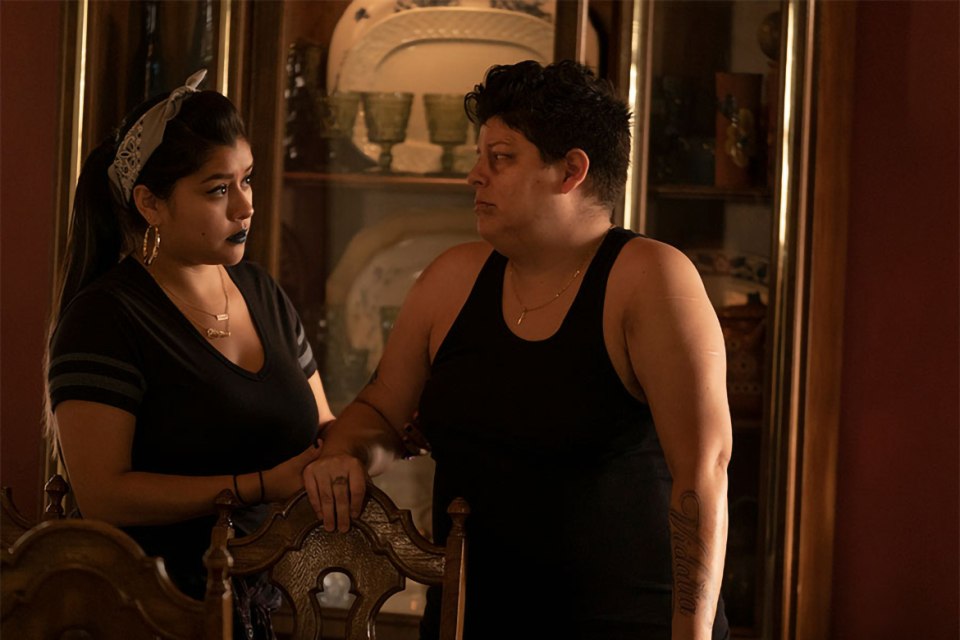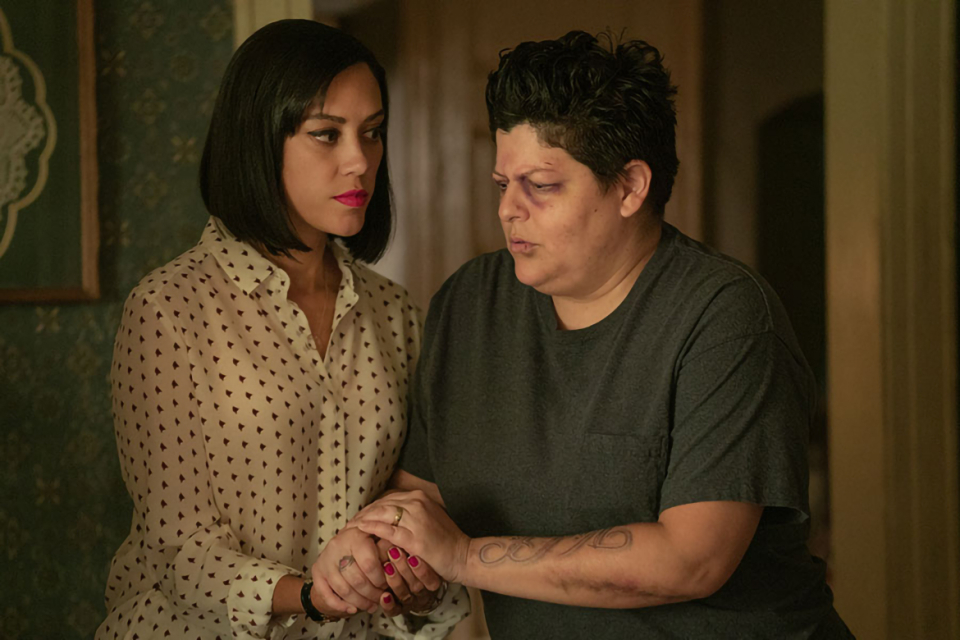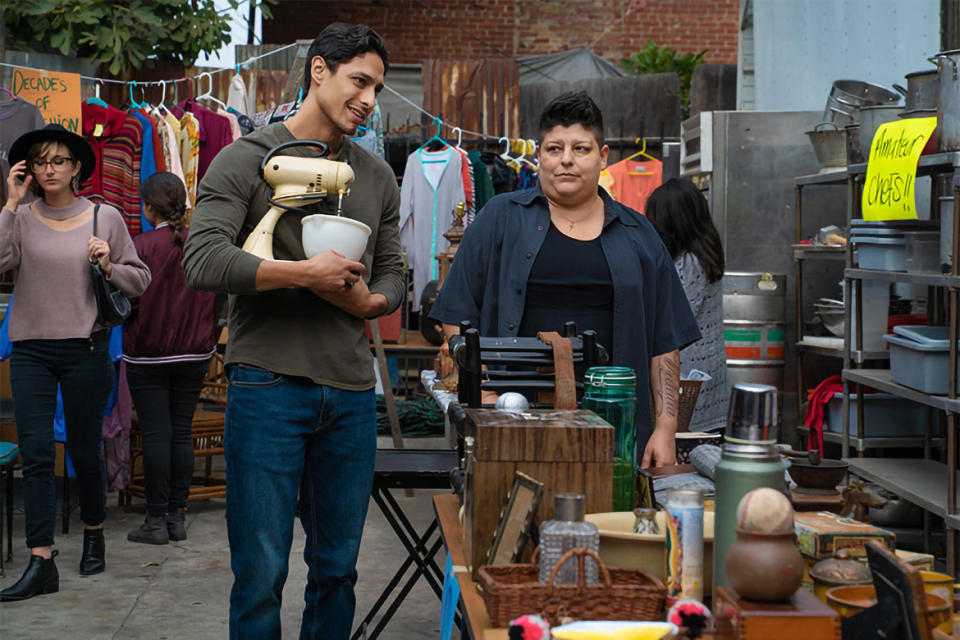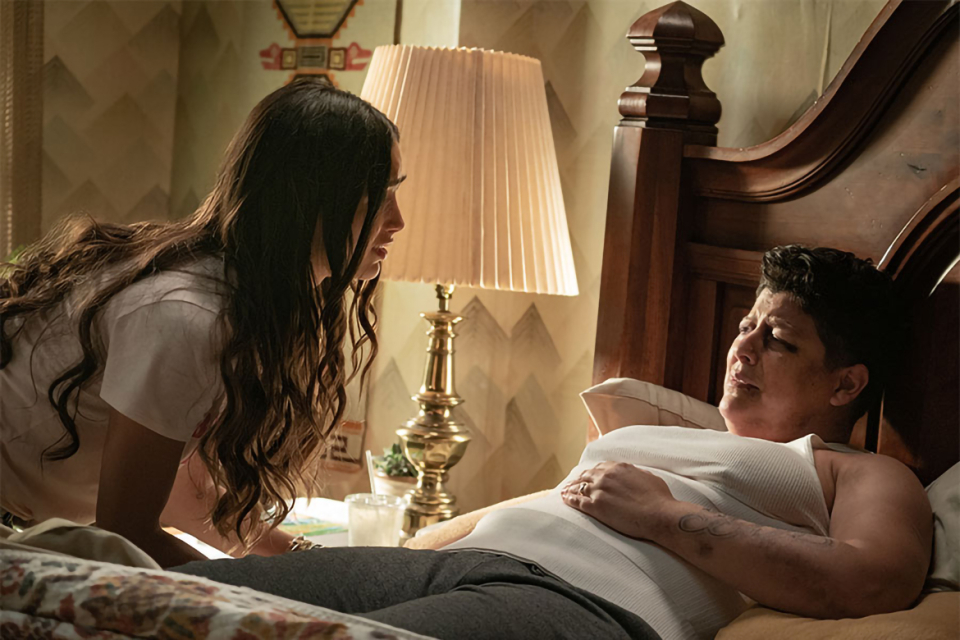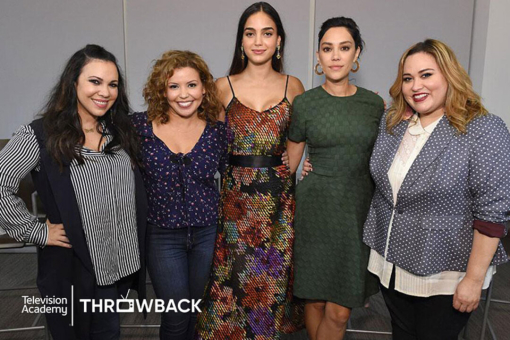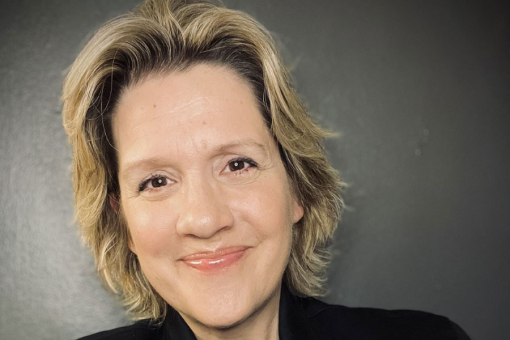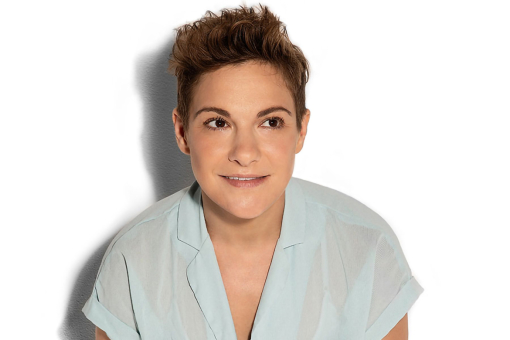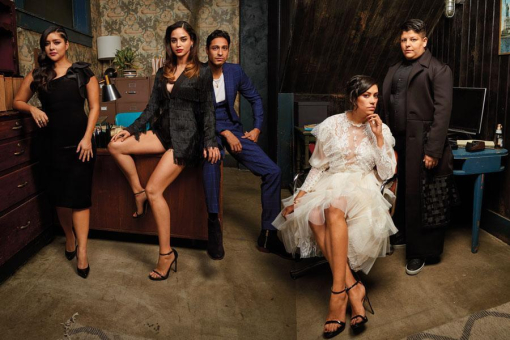Labels or choosing between "this" or "that" isn't actor Ser Anzoategui's way.
And they've never let a "no" stop them from pursuit of their dreams. That pursuit has paid off, not just in the critically acclaimed Starz hit, Vida, but also in their ever-evolving quest to redefine the labels we so often find ourselves given at birth.
Los Angeles is the baseline of their story. Having grown up all over from Huntington Park (with a two year stint in Argentina) to the San Gabriel Valley, Riverside, Diamond Bar, Whittier, Inglewood and Boyle Heights, they can't help but be influenced by the heartbeat of this city, particularly the Eastside.
Their story is rooted in the fabric of L.A. - the city's growing pains and all. And these experiences have helped anchor the characters they play including Eddy Martinez in Vida.
When did you first realize you didn't always fit into the "boxes" seemingly set by society?
I think as a child I knew who I was, but I was told no, that I couldn't be myself. So I had to conform to the ideas of what my gender expression should be according to my parents. They were hyper feminine and hyper masculine. So my mom, who was hyper femme, dressed me like her.
And I just wanted to take off the outfits, they were itchy, and just play with my bike. I wanted to fall and bleed and get back up again. I was a rugged little boy.
As I was growing up, I was really aware of fashion and how that made a statement. Like if Prince could dress the way he dressed, in heels and ruffled shirts, why couldn't I do what I wanted? It was this idea of what the male should be and what the female should be. So I wasn't in a home that really cultivated embracing who I was.
Instead, I was always changing who I was in order to be who I'm supposed to be in this country.
Do you feel it's harder in this country?
Just as a child of immigrants, you're always representing their country. You're representing everything they are, everywhere you go. It's a huge cross to walk with on your shoulders - this idea of assimilating but also being proud of who we are.
I spoke Spanish, and was able to learn how to speak English and manage not having an accent. I think I was able to do that because of my knack for performing. I was a natural performer, born to perform, there was nothing else I could do! But you don't get paid for that. And people say, why don't you be a lawyer or this or that?
So both as a gender, you go out and represent us. But you also represent us as a country. So when I go out there, as a Latinx person, it's sometimes met with "you're not part of us. You don't look like us." So how do you navigate through these worlds where there's all these boundaries and barriers?
Though I know I grew up with the privilege of already having my parents settled here. And I was lucky that where I grew up, I was able to move around. Some people can't. Like my character Eddy grew up in the projects. And when you grew up there, it's so hard to get out of the grind.
Can you talk about Eddy's experience from the perspective of the show, particularly in breaking down barriers?
I feel it does it in a way that's not hitting you over the head. It's just a matter of fact. You see it in what Tanya (Saracho, Vida's showrunner) says it the tapestry of the show. It's in the visuals, the art direction, the production design. And that's important because it's so detailed but also every day life. It's very specific, as are the people in the bar and in the neighborhood, which is very much like living in Boyle Heights.
There is so much love, even though you might feel like someone's looking at you weird. But people are really cool if you just talk and get to know them.
You find you're not really talking about your sexuality all the time. You know how when you grow up and "you're not allowed" or you're oppressed in some way - you sometimes get even more prideful to be who you are?
It's interesting how sometimes we want to hide and sometimes we say, "Nope, this is who I am, like it or not!"
Again, we see Eddy on the show with the older generation of Catholic women praying with her in a temple. And that's the kind of stuff you don't always get to see because so much of the time, it's written by people who don't have the experience.
The show portrays so much in 30 minutes, even in the patrons themselves. They're so eclectic. Like immigrant men wearing cowboy hats. That's so common to really see in the area. Just across the street, they're looking for work as musicians. And they happen to go to a bar that pretty much everyone knows is gay. Like the Vida bar, it doesn't have a flag outside. It's all inside the walls and you have to go in and check it out.
You can't really say I know someone's gender. I know who you are. Because there's all kinds of women, all kinds of men and all kinds of genders - more than two. So in one glimpse of the bar, you see some of the reflection of this world that we live in. Just because my friend, say, looks like a man doesn't mean he's a cis man.
Some people don't even want to be known as trans because they don't want to be put in a box and they don't want to deal with it. That's their decision and we have to respect that.
With Eddy, you bring this beautiful strength. What was your process in finding that character?
The strength comes from knowing she's from the projects. Her background, from talking to Tanya, and that isn't shown on TV. And for me, knowing the history - questions like where did she grow up, what was that like? I knew that if she was able to get to this point of managing a bar, that's huge. So I had to think, well they have done so much to get to this point.
I filled journals with memories of Eddy's past - the whole journey from the beginning. The important markers of their life psychologically, what did they learn from those experiences, how did it harden them?
There was a time when Eddy was really hard. Then there was a time where they learned that love is the answer. And that's one of the biggest lessons I've learned as an actor from playing Eddy. Sometimes I don't have patience, but imagine all that Eddy has to deal with - the stepdaughters, mourning Vida.
All the reminders that she's not "them." That she doesn't have the education, doesn't have the money. But that lesson in falling, and then keep getting up. Even hitting a rock bottom.
So the strength comes from the wisdom and all the experiences she's been through in her life.
There's also a kindness that comes across in the character.
Tanya has said Eddy is the heart of the show. So I know she's the glue. And she has to be consistent and rooted in her grieving.
Can you talk about your name?
Ser is a name I chose. It just means "a being." See me as a being. A lot of people will say "I don't see gender" or "I don't see race." But you have to deconstruct that. Look at it in the actions and how you can always be an advocate. People are always gendering and it's good to make people aware that there's more than just a he and a him.
Language can be a huge prison. There's a real wiring that changes and we can try to understand something but there will always be new language to give us a better understanding of what something is - or how to look from a different angle.
Because we haven't had this language in our culture. We've had it in civilization, where trans and non binary people were revered for the fact that they have this ability to transcend. And that meant that they could talk to God, so the town would go to them and beg "please heal me."
But in our society, where we grew up, gender is very much a prison and the language creates the prison cells. But we're not computers. We're not binary in a computer where it's only this or that. No! There's more than just two!
So true about language. There are some that don't even have a word for what you're describing.
Exactly. And the reality could be a lot more beautiful and a lot less painful. Less suffering if it's more than just those two options.
Vida won Outstanding Comedy Series at the GLAAD Awards. What was it like to stand on that stage?
I was completely shocked. You know those moments in your head where you imagine yourself accepting the award? But when it actually happened, you think - wait that was just in my head though! We were up against so many great shows and as the first season, what are the chances that they see what the show is?
Vida is renewed for Season 3. What do you hope for Eddy and for the show in general?
For Eddy, I hope that no matter what happens, that she somehow finds some joy in her life. I hope that she gets over her addictions I hope she's able to get help for herself, not relying on anything or anyone else.
Is there anything else you're working on?
I'm writing a play! In the process of finishing soon so I can begin editing and inviting friends over to read it. I've been doing stand up, so stay tuned on my social media for that!

